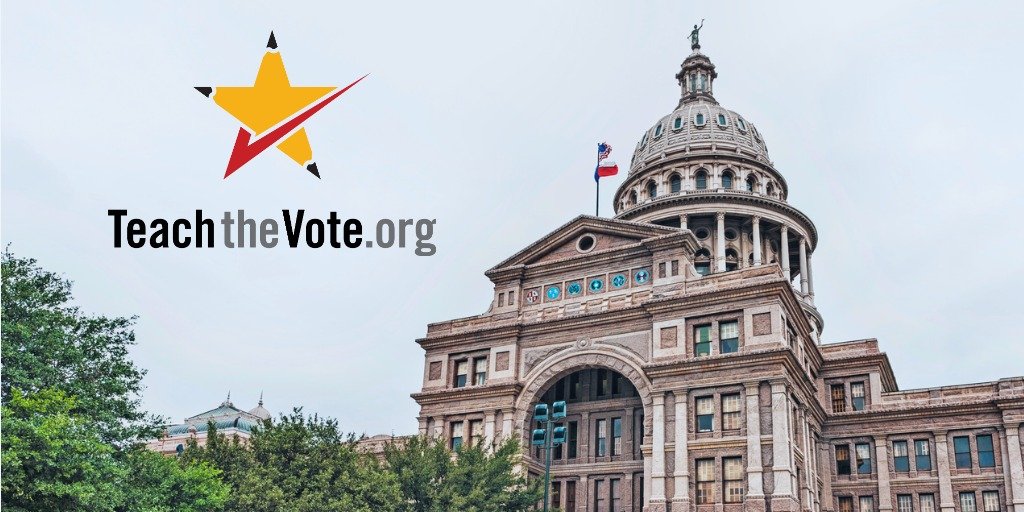Guest Post: Texas educators have earned the higher support of their fellow Texans during pandemic

School Finance COVID-19 Privatization | Vouchers Testing | Accountability
Date Posted: 2/05/2021 | Author: Jennifer Jendrzey, Raise Your Hand Texas
 It’s hard to believe that, just over a year ago, many of us didn’t know what Zoom was. Lots of educators never dreamed they’d be doing their job virtually, much less teaching on screen and in person at the same time.
It’s hard to believe that, just over a year ago, many of us didn’t know what Zoom was. Lots of educators never dreamed they’d be doing their job virtually, much less teaching on screen and in person at the same time.
Yet, our public school educators have handled these challenges with grit, grace, and determination.
And Texans recognize and honor their efforts.
According to the Raise Your Hand Texas Foundation’s newest poll on Texans’ perceptions of public education, an overwhelming 92 percent report the same or even more appreciation for their schools than before the pandemic.
Additionally, they are willing to back up that support with greater investment. A majority of Texans continue to say public schools in their community have too little money. And 7 in 10 Texans say public schools need more funding to address COVID-related challenges, such as safety measures, technology, and training.
This is important as we head into a legislative session with a less rosy budget picture. Due to a dip in oil prices and the pandemic’s impact on the economy, Texas faces a $7 billion funding shortfall.
Our poll found Texans are clear-eyed about this threat to our public schools. In fact, 84 percent of all Texans, and 88 percent of public school parents, are very or somewhat concerned that a cut in funding would impact the quality of public education.
Texans also continue to express skepticism about public school privatization and how effective the STAAR test is at measuring student learning. Majorities of Texans oppose voucher programs and oppose establishing or adding charter schools in their community if it means reducing funding for their local public schools. In addition, fewer than 2 in 10 call STAAR “very” effective at measuring student learning over time; the quality of the student’s teacher, school campus or district; or how well-prepared a student is for next steps after high school.
In fact, when given eight options for the single most important factor that makes a good teacher, preparing students for standardized testing comes in dead last.
What does matter to Texans when it comes to teaching? In their poll responses, Texans said the following are important factors to quality teaching:
- assessing and planning for all students’ individual learning needs
- making the class engaging and relevant
- supporting students’ self-management, interpersonal skills and decision-making skills maintaining an organized and safe classroom
Texans have spoken — they have educators’ backs. Now, during the legislative session, our state needs lawmakers to do the same, for our students, for our educators, and for the future.
Jennifer Jendrzey is the Vice President of Strategy & Evaluation at Raise Your Hand Texas, a non-profit organization that invests in programs, conducts research, and advocates for policies that strengthen and improve Texas public schools.
CONVERSATION
RECOMMENDED FOR YOU

Congress | Federal, COVID-19, Curriculum | Instruction, Educator Compensation | Benefits, Educator Preparation | Certification, Elections, School Finance, School Safety, Testing | Accountability, Texas Legislature
08/04/2023
Teach the Vote’s Week in Review: Aug. 4, 2023
ATPE weighs in on current political climate for education in Houston Chronicle story—plus, a look at federal ed prep and special education developments.

12/19/2025
Teach the Vote’s Week in Review: Dec. 19, 2025
Happy Holidays from ATPE! The ACLU of Texas is challenging SB 12 in federal court, and ATPE has distributed candidate surveys to those running for statewide, legislative, and SBOE seats.

12/18/2025
Gov. Abbott’s property tax promise and the split in the Texas GOP
Property taxes aren’t just a political talking point. They’re the main revenue source for vital local services, including police, fire, and public education.

